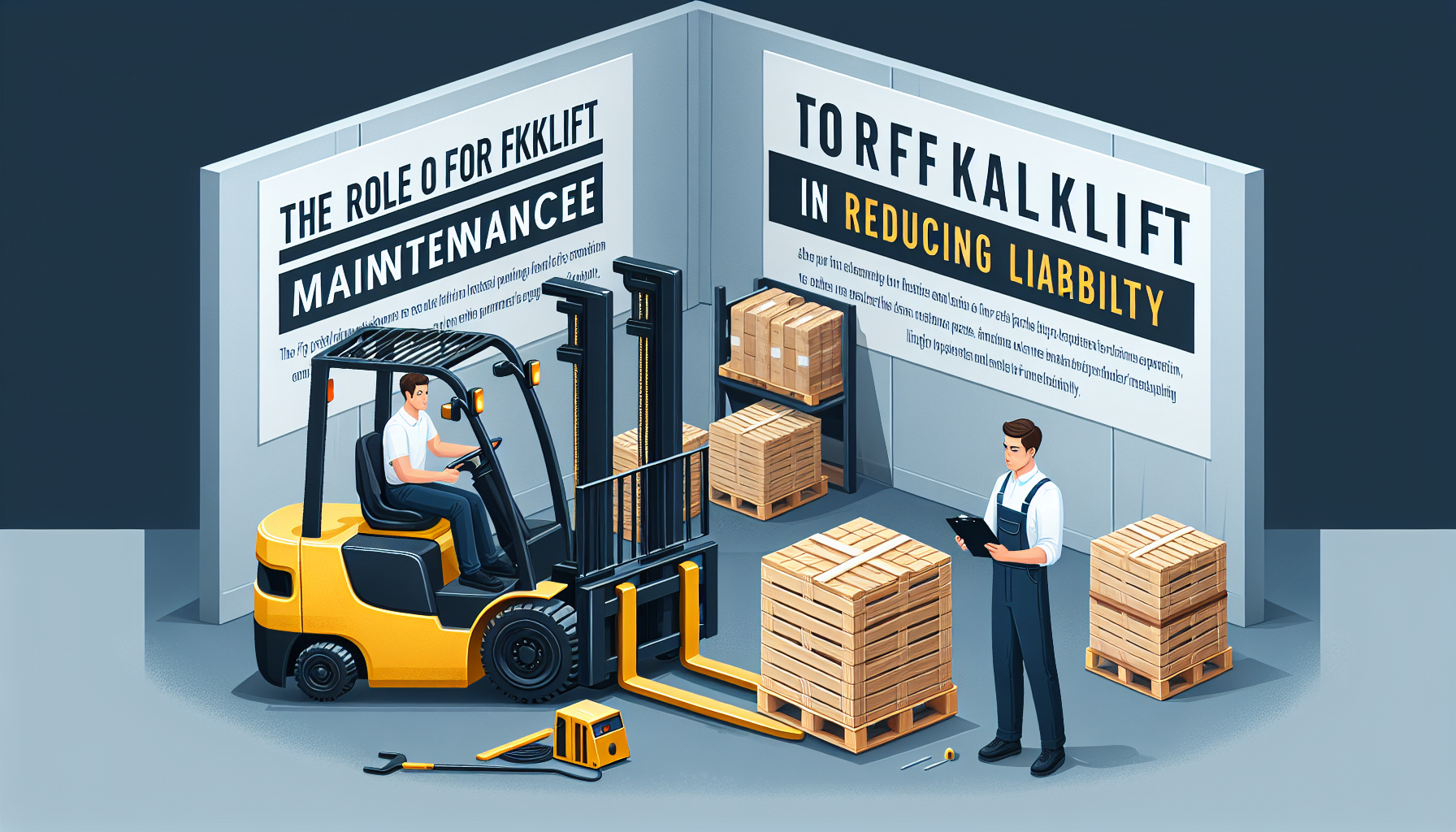When it comes to warehouse operations, safety should always be a top priority. One crucial aspect of ensuring a safe working environment is proper forklift maintenance. Forklifts play a significant role in warehouse operations, and any malfunction or failure can lead to accidents, injuries, and even fatalities. In addition to the obvious safety concerns, there are legal and financial implications that companies must consider. In this article, we will explore the essential role of forklift maintenance in reducing liability.
The Importance of Regular Forklift Maintenance
Forklifts are powerful machines that are designed to lift heavy loads and navigate through narrow aisles. However, like any mechanical equipment, forklifts require regular maintenance to perform at their best and ensure safety. The benefits of regular forklift maintenance are manifold:
- Enhanced Safety: Properly maintained forklifts are less likely to experience mechanical failures or breakdowns, reducing the risk of accidents and injuries in the warehouse. Routine maintenance allows technicians to identify and address potential issues before they become a serious problem.
- Increased Productivity: Well-maintained forklifts operate more efficiently, leading to improved productivity and streamlined warehouse operations. Regular maintenance helps prevent unexpected breakdowns that can disrupt workflow, resulting in costly delays.
- Extended Lifespan: Forklifts are a significant investment for any warehouse. By implementing a regular maintenance program, companies can maximize the lifespan of their forklifts, reducing the need for frequent replacements and saving on equipment costs.
- Compliance with Regulations: Forklifts are subject to various safety regulations, such as those set by the Occupational Safety and Health Administration (OSHA). Regular maintenance ensures that forklifts meet all necessary safety standards, helping companies avoid legal penalties and fines.
Liability and Forklift Maintenance
Warehouse accidents involving forklifts can result in severe injuries or even fatalities. In such cases, the company operating the warehouse may be liable for any damages caused. This liability can extend to medical expenses, worker’s compensation claims, legal fees, and potential lawsuits. By prioritizing forklift maintenance, companies can mitigate the risk of accidents and minimize their liability in the following ways:
- Preventing Accidents: Routine maintenance ensures that all components of the forklift are in optimal condition, reducing the chances of mechanical failures or malfunctioning during operations. This significantly lowers the risk of accidents caused by faulty equipment.
- Documentation and Record-Keeping: Implementing a comprehensive forklift maintenance program includes keeping detailed records of all maintenance activities, inspections, and repairs. Having these records readily available can serve as evidence to demonstrate that the necessary precautions were taken, which can be crucial in liability cases.
- Training and Certification: Another important aspect of forklift maintenance is ensuring that operators are properly trained and certified to operate the equipment. Regular training sessions and refresher courses can help reinforce safe operating practices, reducing the likelihood of operator error.
- Partnering with Experts: Outsourcing forklift maintenance to a professional service provider like HCO Innovations can offer numerous advantages. Companies specializing in warehouse optimization solutions, such as HCO Innovations, have the expertise and experience to conduct thorough inspections, perform necessary repairs, and advise on best practices for forklift maintenance.
HCO Innovations provides turnkey forklift maintenance solutions that can help companies reduce liability and enhance safety in their warehouse operations. With their expertise in warehouse optimization, they can customize maintenance programs to meet the unique needs of each facility.
In conclusion, proper forklift maintenance plays a crucial role in reducing liability for companies operating warehouses. By prioritizing regular maintenance, companies can enhance safety, increase productivity, comply with regulations, and minimize the risk of accidents and associated liabilities. Partnering with a reliable forklift maintenance provider like HCO Innovations can ensure that businesses receive comprehensive and professional services to optimize their warehouse operations.

